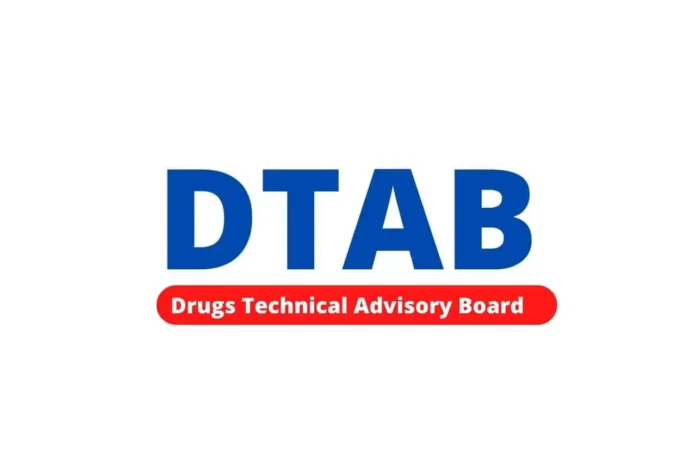Last Updated on December 31, 2023 by The Health Master
Presence of banned antibiotics in food producing animals
The Drugs Technical Advisory Board (DTAB), responsible for advising the Central and State governments on matters related to drug regulation and administration, has recommended a stakeholder consultation to tackle the growing issue of banned antibiotic usage in food-producing animals.
This recommendation comes in response to the increasing number of shrimp export rejections by the European Union (EU) due to the presence of antibiotics in samples.
To ensure effective implementation of the Drugs and Cosmetics Act and Rules, the DTAB has also suggested discussing the matter in the Drugs Consultative Committee (DCC).
Deliberation on Banned Antibiotic Usage:
During the 89th DTAB meeting, chaired by Prof (Dr) Atul Goel, Director General of Health Services, on May 10, the topic of banned antibiotics in food-producing animals was chosen for discussion.
The Marine Products Exports Development Authority (MPEDA), a statutory body under the Ministry of Commerce and Industry, brought up concerns regarding the availability of pharmacologically active substances, including antibiotics, that are prohibited for use in agriculture.
Antimicrobial Resistance and Shrimp Export Rejections:
The usage of banned antibiotics and other drugs poses a significant threat in the form of antimicrobial resistance (AMR), which increasingly endangers public health.
The National Residual Control Plan (NRCP) for agricultural analysis revealed the detection of banned antibiotics in shrimp samples, indicating the usage of these compounds.
As a result, there has been a rising trend of shrimp export rejections by the EU.
Responding to a request from the MPEDA, the Ministry of Health was urged to take measures that would restrict the availability and usage of banned antibiotics in food-producing animals, including shrimps.
Also read: Drugs Technical Advisory Board (DTAB): Minutes of meetings
Legal Prohibitions and Residue Limits:
According to a Gazette Notification on July 20, 2018, by the Food Safety and Standards Authority of India (FSSAI), various antibiotics and veterinary following drugs, are strictly prohibited at all stages of meat and meat product processing, poultry and egg production, and seafood preparation, including shrimps, prawns, fish, and fishery products.
- Nitrofurans (Furaltadone, Furazolidone, Nitrofurantoin, Nitrofurazone),
- Chloramphenicol.
The permitted extraneous maximum residue limit is 0.001 mg/kg, except for Chloramphenicol, which has a limit of 0.0003 mg/kg.
Recommendations and Stakeholder Consultation:
Recognizing the severity of the issue, the DTAB recommended holding a stakeholder consultation involving the FSSAI, Department of Animal Husbandry and Dairying (DAHD), Department of Fisheries, Ministry of Agriculture & Farmers Welfare, and MPEDA.
This consultation aims to develop a comprehensive strategy and initiate appropriate actions.
Additionally, the matter should be discussed in the DCC to ensure proper implementation of the Drugs and Cosmetics Act and Rules, preventing the diversion of antibiotics for illegal use in food-producing animals, including shrimps and aquaculture.
International Repercussions:
Instances of shrimp consignment rejections from India by regions such as the European Union have been reported for over a decade. In 2022, the US Food and Drug Administration (USFDA) refused sixty entry lines of shrimp due to the presence of antibiotics, with 29 rejections originating from India.
Thailand accounted for eleven rejections, while Bangladesh accounted for ten. Other refusals involved shrimp from Hong Kong, Vietnam, Malaysia, China, and Mexico.
The Southern Shrimp Alliance, an organization representing shrimp fishermen, processors, and members in eight states in the United States, documented multiple rejections of shipments from India throughout 2023.
National Action Plan on Antimicrobial Resistance (NAP-AMR):
DTAB acknowledged that the Ministry of Health and Family Welfare, in consultation with various stakeholders, developed the National Action Plan on Antimicrobial Resistance (NAP-AMR), officially released on April 19, 2017.
The ministry shared the details of the actions taken and planned for implementing interventions and activities related to the Central Drugs Standard Control Organization (CDSCO) with the NAP-AMR Secretariat.
Conclusion:
Addressing the issue of banned antibiotic usage in food-producing animals requires a collaborative effort involving stakeholders from various sectors.
By implementing strategies outlined in the National Action Plan on Antimicrobial Resistance and ensuring the proper implementation of regulatory provisions, it is possible to mitigate the risks associated with antimicrobial resistance and protect public health.
Codeine cough syrup worth Rs 35 lakh seized: Maharashtra
DTAB: Proposal to Amend Medical Devices Rules for Hospital Imports
Guidance documents for industry
USFDA completes inspection of Dr Reddy’s with zero observation
PCI and IPA join hands to enhance quality of Pharmacy Education
USFDA issues Form 483 with 11 observations IPCA Labs: Ratlam
UP Govt Drafts Pharmaceutical Industry Policy 2023: Details
Safe Disposal of Unused Drugs: Urgent Need a Comprehensive Policy
Drug alert: 28 out of 1302 samples declared as NSQ in May 2023
Action to be taken against Pharmacies offering abnormal discounts: Karnataka








